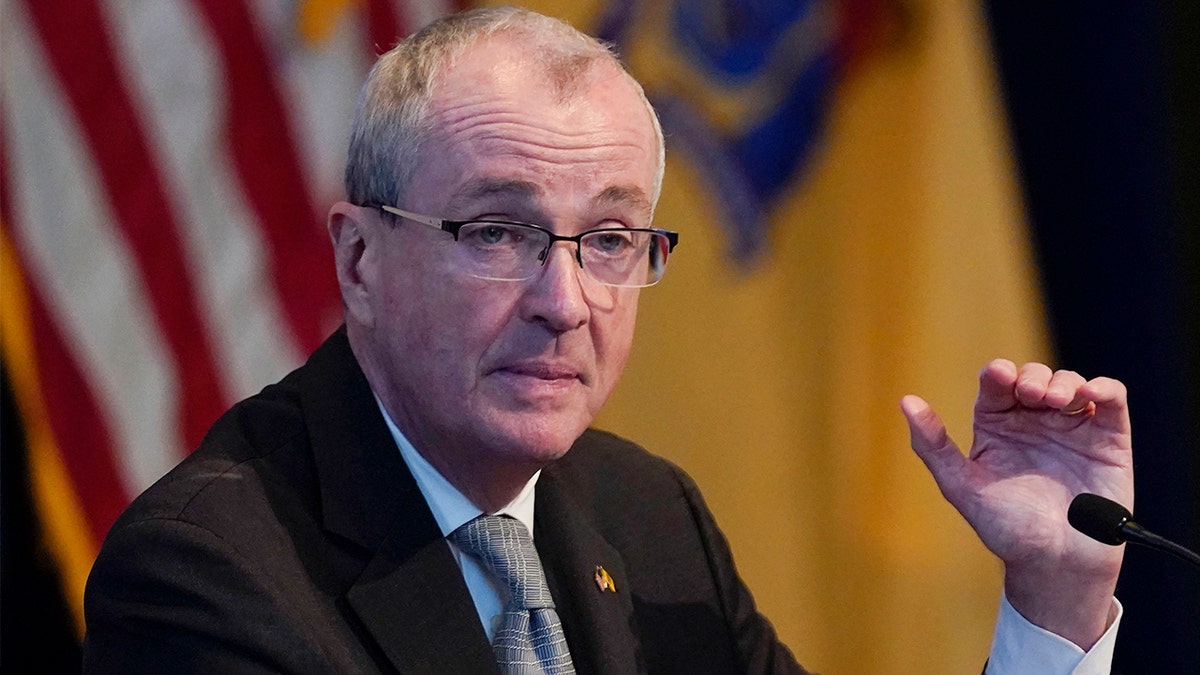New Jersey parents rip gender identity lessons for first graders: 'It's concerning'
Fox News correspondent Nate Foy speaks to concerned parents who are speaking out against New Jersey’s new sex education curriculum.
New Jersey, the state that first required sex ed to be taught in all schools, is under fire once again for implementing controversial standards, which include discussions of gender norms by second grade, masturbation by fifth grade and anal sex and "pregnancy options" by eighth grade.
New health and physical education standards passed by the New Jersey Department of Education were first approved in 2020, and schools are set to implement them this year.
Gov. Phil Murphy, D., defended the standards earlier this month in a "Ask Governor Murphy" discussion on News12 New Jersey, saying they were "age appropriate" for students.
"All of this health and sex education awareness is age appropriate," Murphy said. "You want a country where girls don’t think that they can only wear pink, or only take certain courses, or only play certain sports."

New Jersey Governor Phil Murphy speaks to reporters during a briefing in Trenton, N.J., Monday, Feb. 7, 2022. (AP Photo/Seth Wenig, File)
"As you get older, you want to make sure that our young people are aware of what is acceptable behavior and what is unacceptable behavior, so when something bad happens, they know enough to raise their hand and say ‘that doesn’t feel right to me,'" he added.
New Jersey State Sen. Holly Schepisi, R., told Fox News Digital she does not believe the standards are age appropriate, and the Department of Education is taking control away from parents by implementing them.
"It’s really interesting, because there are some school districts… that have now decided to implement some of these standards even at younger ages," Schepisi said.
NEW JERSEY TEACHERS UNION CONDEMNS PARENTS AS ‘EXTREMIST’ IN NEW AD

New Jersey Governor Phil Murphy speaks during an election night event at Grand Arcade at the Pavilion on November 2, 2021 in Asbury Park, New Jersey. (Getty Images)
"We keep seeing a push for more and more at younger ages, and… for myself, one of the most problematic things about it, is parents are not being listened to. There is no kind of engagement in hearing what parents' concerns are," she added.
The latest Rutgers-Eagleton Poll showed that 51 percent of New Jersey adults oppose having health and sexual education taught in elementary school. Seventy-one percent support it being taught in middle school, and 88 percent support it being taught in high school. According to a recent New York Times poll, more than two-thirds of registered voters oppose sexual orientation and gender identity being taught in grade school.
PARENTS BEHIND POPULAR SOCIAL MEDIA ACCOUNTS CHAT ABOUT EXPOSING SCHOOL CONTROVERSIES
The New Jersey Department of Education threatened schools who did not wish to implement the standards with "disciplinary action." That could include required performance improvement plans for the district, a loss of local control or even a loss of funding.
Berkeley Heights, New Jersey, school superintendent Dr. Melissa Varley told Fox News Digital last week if the district does not implement the standards, they would "not pass New Jersey Quality Single Accountability Continuum (NJQSAC) monitoring. If the district fails this process we may become ineligible for state and even federal funding."
In order to opt out of the health class, parents must notify the school in writing that the curriculum "conflicts with their conscience or sincerely held moral or religious beliefs," according to the New Jersey Department of Education.

School-age students walk to class. (istock )
"I don’t think this has anything to do with religion," Schepisi said. "It has everything to do with parental involvement, and topics they believe are appropriate for the youngest kids to learn."
"For all parents… stay engaged, be respectful as you stay engaged, but you are ultimately the parent, and if you don’t feel something is age appropriate for your own child, opt them out."
The state has faced backlash over several elements of the Comprehensive Health and Physical Education standards, including students discussing "the range of ways people express their gender and how gender-role stereotypes may limit behavior" by second grade.
A listed performance expectation for fifth-grade students is to "explain common human sexual development and the role of hormones (e.g., romantic and sexual feelings, masturbation, mood swings, timing of pubertal onset)."
CLICK HERE TO GET THE FOX NEWS APP
Performance expectations for students by eighth grade include to "define vaginal, oral, and anal sex," to "develop a plan to eliminate or reduce risk of unintended pregnancy and STIs, (including HIV)," and to "describe pregnancy testing, the signs of pregnancy, and pregnancy options, including parenting, abortion, and adoption."

